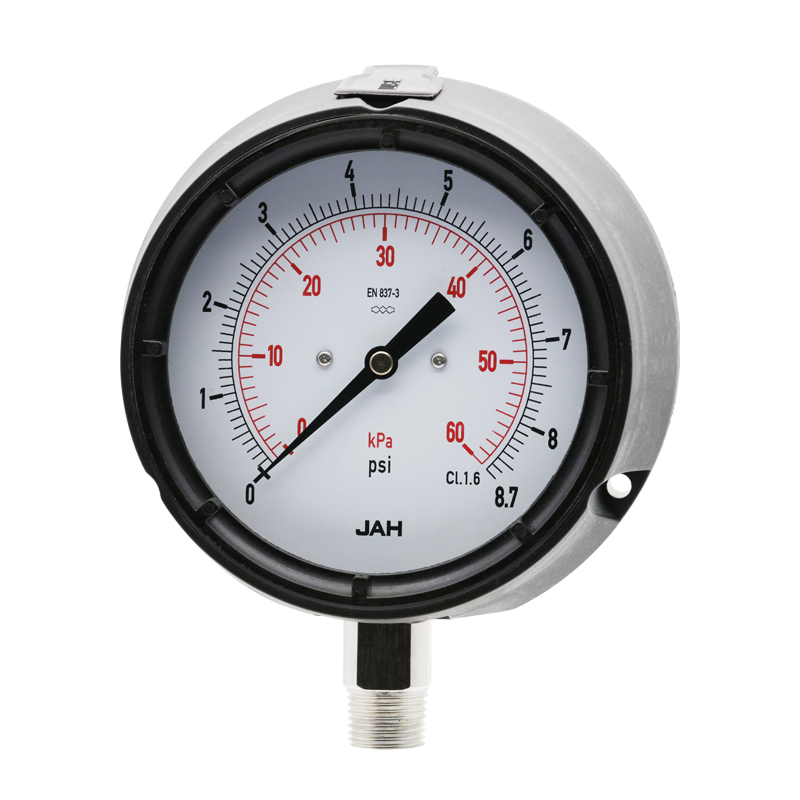
Aug . 19, 2024 15:46 Back to list
High-Performance Low-Pressure Diaphragm Pressure Gauges for Accurate Measurement
High-Quality Low Pressure Diaphragm Pressure Gauges An Essential Tool for Accurate Measurements
In various industrial applications, accurate pressure measurement is crucial for maintaining operational safety and efficiency. Among the many types of pressure measuring instruments available, high-quality low pressure diaphragm pressure gauges stand out due to their accuracy and reliability, especially in applications involving low pressure environments. This article explores the features, benefits, and applications of these essential measuring devices.
Understanding Diaphragm Pressure Gauges
Diaphragm pressure gauges utilize a flexible membrane, or diaphragm, which deforms in response to changes in pressure. This deflection is then translated into a pressure reading on the gauge’s dial. The design of the diaphragm allows for high sensitivity and accuracy, making these gauges particularly suitable for low pressure measurements. High-quality diaphragm pressure gauges are made from materials that can withstand various pressures and corrosive environments, ensuring longevity and durability.
Key Features of High-Quality Gauges
1. Material The construction of diaphragm pressure gauges is critical. High-quality models are often made from stainless steel, bronze, or other corrosion-resistant materials, allowing them to function effectively in harsh environments. This is particularly important in industries that deal with chemicals or high humidity.
2. Calibration Calibration is essential for precision. High-quality gauges come pre-calibrated and can be easily recalibrated for ongoing accuracy. Regular calibration ensures that the measurements remain precise over time, which is vital for compliance with industry standards.
3. Accuracy High-quality low pressure diaphragm gauges typically offer accuracy levels of ±1% to ±0.5% of full scale. Such precision is crucial in applications where slight variations in pressure can lead to significant operational issues or safety hazards.
4. Range These gauges are available in a variety of pressure ranges suitable for low pressure applications, typically from 0 to 30 psi. This versatility makes them ideal for varied environments, from laboratory settings to food and beverage processing plants.
5. Safety Features High-quality models often include safety measures such as overload protection and blow-out back design, which helps prevent accidents caused by overpressure conditions. Such features enhance user safety while maintaining measurement integrity.
high quality low pressure diaphragm pressure gauges

Advantages of Using Diaphragm Pressure Gauges
The advantages of utilizing high-quality low pressure diaphragm pressure gauges are manifold
- Enhanced Accuracy With their superior sensitivity and calibration capabilities, diaphragm gauges provide precise readings, ensuring optimal operational control.
- Versatility These gauges can be used across various industries, including food and beverage, pharmaceuticals, water treatment, and HVAC systems. Their adaptability to different fluids—gases, liquids, and even corrosive substances—makes them indispensable.
- Reduced Maintenance With fewer moving parts compared to mechanical gauges, diaphragm pressure gauges typically require less maintenance, thus lowering operational costs over time.
- Easy Installation Most diaphragm gauges have simple installation protocols, allowing for quick setup and integration into existing systems.
Applications in Industry
In the industrial landscape, low pressure diaphragm pressure gauges find numerous applications. In the food and beverage sector, they are used to monitor fermentation processes. In the pharmaceutical industry, they ensure the precise measurement of gases used in production. Additionally, HVAC systems utilize these gauges for managing the pressure of refrigerants, ensuring optimal system performance.
Conclusion
High-quality low pressure diaphragm pressure gauges are an essential component in measuring and maintaining pressure in various applications. Their accuracy, durability, and versatility make them invaluable in industries ranging from food processing to pharmaceuticals. As technology continues to advance, these instruments will undoubtedly play a crucial role in enhancing operational efficiency and safety in industrial environments. Investing in reliable diaphragm pressure gauges is not just a choice; it’s a necessity for businesses aiming for precision and excellence in their operations.
-
High-Precision Mass Diaphragm Pressure Gauge - Reliable & Durable Solutions
NewsJun.10,2025
-
Explain Diaphragm Pressure Gauge Expert Guide, Top Manufacturers & Quotes
NewsJun.10,2025
-
Affordable Differential Pressure Gauge Prices in China Top Manufacturers
NewsJun.10,2025
-
Reliable Water Fire Extinguisher Pressure Gauges for Safety
NewsJun.10,2025
-
Durable Diaphragm Protection Pressure Gauges Get Quote
NewsJun.09,2025
-
WIKA Differential Pressure Gauge with Switch Reliable Monitoring & Control
NewsJun.09,2025
